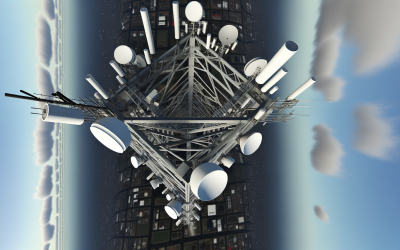


Why does everything have to be so complicated?
Ever had that moment where you're staring at something-an instruction manual, a spreadsheet, a new piece of software-and thinking, why does this have to be so complicated? I know I have. And the worst part? The more you try to understand it, the more confusing it seems.
Some things in life are just inherently complex. Tax returns, legal contracts, assembling flat-pack furniture-there's a reason people make a living out of deciphering them. But other times, complexity feels unnecessary, like a barrier put up to make something seem more important than it really is.
As a writer, my job is to cut through that complexity. To take something that might seem intimidating and make it feel approachable. But that doesn't mean I don't get caught up in the confusion myself.
When knowledge makes things harder
They say practice makes perfect, but I'm not so sure. Sometimes, the more you know, the more you realise you don't understand. It's like learning a new language-at first, you pick up the basics quickly, but the deeper you go, the more you see how much there is to learn.
There have been plenty of times when I've thought I had a solid grasp on something, only to be thrown off by a new piece of information that changes everything. And in those moments, it's easy to feel like an imposter, like you're just faking it until you make it.
The more you try to understand something, the more confusing it seems.
But here's the thing-everyone feels like that sometimes. Even the experts. The trick is not to let it stop you. Keep asking questions, keep breaking things down, and eventually, the pieces start to fit together.
The power of a five-minute break
When I hit a wall, my instinct is to push through. To keep staring at the problem until I force it to make sense. But I've learned that sometimes, the best thing you can do is step away.
A five-minute break, a cup of tea, a quick walk around the block-whatever it takes to reset your brain. It's amazing how often the answer comes to you when you're not actively looking for it.
Sometimes, the best way to solve a problem is to stop thinking about it for a while.
It's not about giving up; it's about giving your brain the space it needs to process things in the background. And more often than not, when you come back, everything feels a little clearer.
Getting comfortable with the unknown
I'd love to say that one day, I'll reach a point where I understand everything perfectly, where nothing ever feels overwhelming or confusing. But let's be real-that's never going to happen. And that's okay.
What I can do is get better at dealing with those moments when things don't make sense. To remind myself that confusion isn't failure, it's just part of the process. And hopefully, over time, those moments will become fewer and further between.
Confusion isn't failure-it's just part of the process.
So the next time you find yourself staring at something that makes no sense, take a breath. Step away if you need to. And remember-you're not alone in this. We're all just figuring it out as we go.






